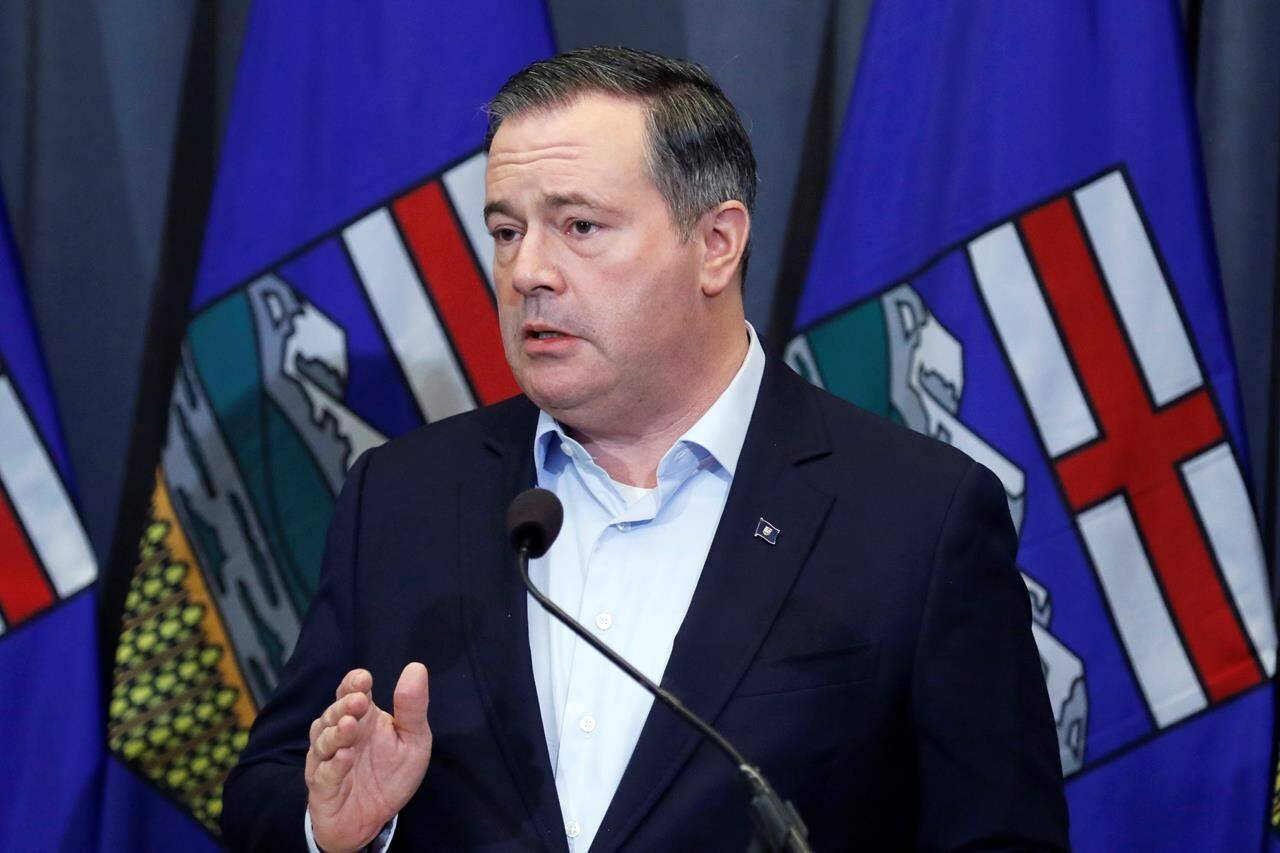Premier Jason Kenney says Alberta’s vaccine passport will end almost immediately, with most other big COVID-19 health rules gone three weeks later.
Kenney told a news conference Tuesday that the vaccine passport, known in Alberta as the restriction exemption program, would end within hours — at midnight.
He said strong vaccination rates, declining hospital cases and a continued decline in the spread of the Omicron variant make it possible to end the passport.
“Our approach to COVID must change as the disease changes,” Kenney told a news conference. “The restriction exemption program has served its useful purpose. It’s done its job.”
Kenney also announced that capacity limits at venues will end at midnight Tuesday, except for those that host 500 people or more.
Also, as of Monday, mandatory mask rules will be cancelled for children under 12 in all settings and for all children in schools.
Kenney said more health restrictions will fall in the coming weeks, as long as COVID-19 does not place renewed intolerable pressure on the health system.
The plan is to remove all indoor masking rules by March 1, along with capacity limits on large venues, mandatory work from home requirements and social gathering limits.
Alberta joins other provinces in announcing plans to end some or all of their health rules, citing virus protection and waning Omicron numbers as justification to ease up.
Earlier Tuesday, Saskatchewan Premier Scott Moe said his government will begin lifting all of its pandemic public health orders in a phased approach, starting Monday with the removal of its vaccine passport policy.
Saskatchewan’s mask mandate and requirement for people to self-isolate if they test positive for the virus will be gone by month’s end.
Quebec also said Tuesday it would see most restrictions lifted by March 14. And Prince Edward Island announced a phased plan to end most measures by early April.
Alberta’s vaccine passport mandated anyone using non-essential services, such as bars and restaurants, show proof of vaccination.
The program was voluntary, but businesses that did not participate were subject to restrictions, including severely reduced customer capacity.
Since being introduced last September, the passport had come to symbolize a clash within Alberta — and within Kenney’s own United Conservative caucus and party — on balancing public health orders with individual rights and freedoms.
A week ago, Kenney said the passport could be eliminated by the end of March.
Critics, including the Opposition NDP, have said Kenney’s about face is motivated by political survival, given that some of his caucus members have spoken out against vaccine mandates and Kenney, dealing with low poll numbers, faces a party leadership review in two months.
—Dean Bennett, The Canadian Press
RELATED: Provinces to relax COVID-19 restrictions, say risk assessment lies with citizens
RELATED: Wait for Henry, Family Day for pandemic relief, B.C. premier says

